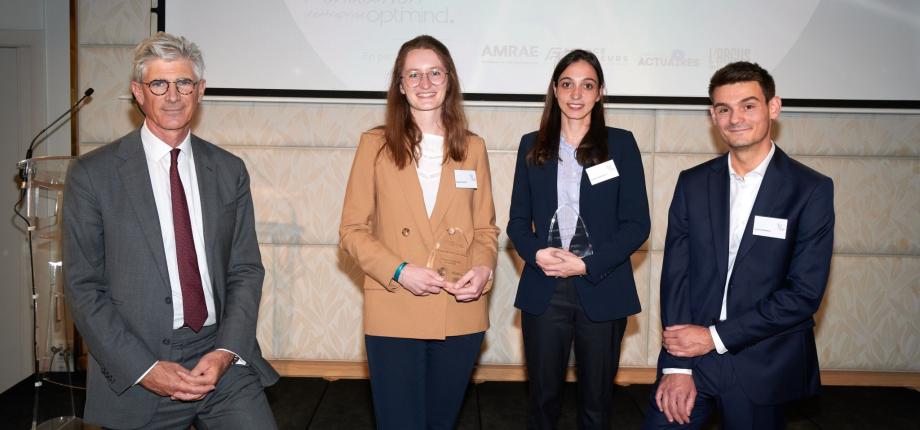Prix des Sciences du Risque 2023 : Congratulations to Marguerite Saucé and Antoine Heranva

For the 5th edition of the Prix des Sciences du Risque, the Optimind Foundation, in partnership with the Institute of Actuaries, AMRAE, France Assureurs and Argus de l'assurance, has chosen two co-winners in 2023, each receiving a prize of 5,000 euros, as well as a special mention. Congratulations to:
- Marguerite SAUCÉ (Actuarial Science Specialized Masters® (MS) student), rewarded for her dissertation at ENSAE Paris, "AI and ethics in insurance: a new solution to mitigate proxy discrimination in risk modelisation"
Prompted by the growing attention paid by regulators to the ethical use of data in insurance, the actuarial community may be led to analyze pricing and risk selection practices for fairer insurance by considering constraints, regulatory or otherwise, on non-discrimination and the use of sensitive personal data in algorithms.
While the absence of protected variables prevents cases of direct discrimination, the latent interactions between these and other pricing variables constitute a vector of indirect discrimination. The prize-winning work proposes an innovative method for reducing the risk of indirect discrimination, based on the mathematical concepts of linear algebra. Illustration of the proposed methodology on a concrete case of risk selection in life insurance demonstrates its ease of use and performance.
- Antoine Heranval (teaching coordinator of finance and actuarial science courses at ENSAE Paris), received a special mention for his thesis "Contributions des données de l'assurance à l'étude des risques naturels - Application de méthodes d'apprentissage statistique pour l'évaluation de la nature et du coût des dommages assurés liés aux événements naturels en France", completed at the École doctorale Sciences Mathématiques de Paris Centre - Sorbonne Université.
Against a backdrop of increasing claims due to climatic events, this thesis presents applications of statistical learning methods to assess the nature and cost of insured damage due to natural hazards in France.
Firstly, the study of claims at the fine scale of the building, by applying textual classification methods to expert reports, makes it possible to identify vulnerable parts and potentially improve prevention. Secondly, estimating the cost of RGA-related damage by comparing statistical models, machine learning algorithms and aggregating these models provides a relevant indication of the potential severity of a drought event in progress, and better establishes the links between cost and covariates of interest, notably meteorological and geological. Finally, a method for estimating the cost of flooding events, rapidly after their occurrence, through the coupling of extreme value theory to regression trees and the use of credibility theory is proposed.
Photo credits: Sacha Lenormand









